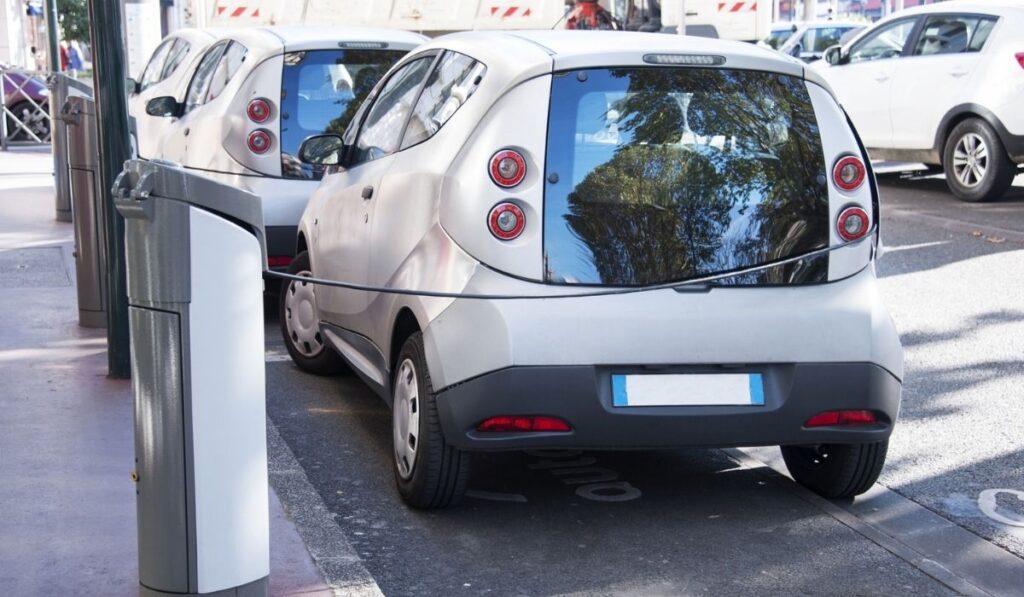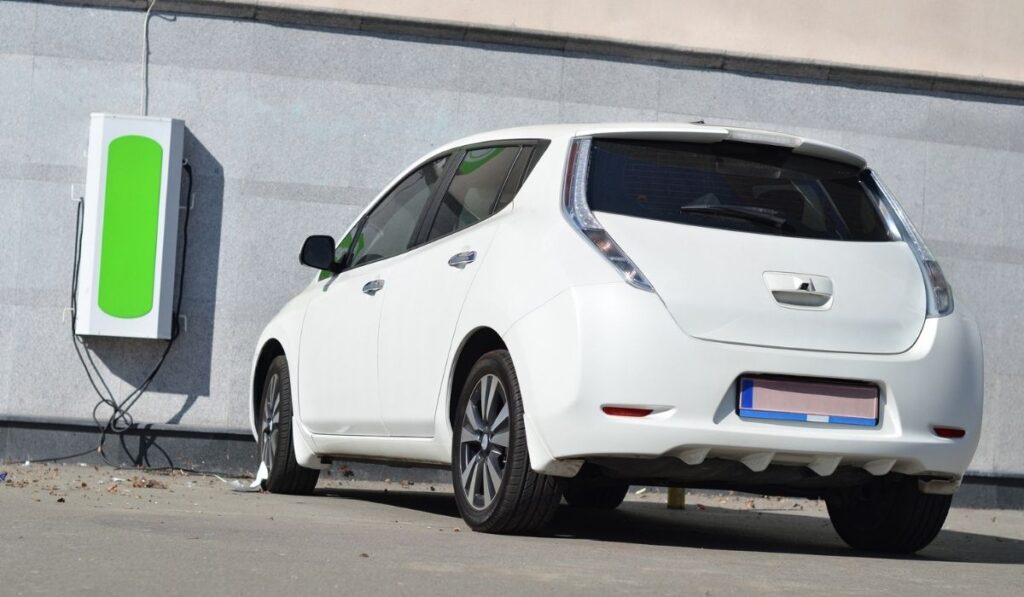With each year, electric vehicles are gaining in popularity and becoming more affordable. Nowadays, the average consumer has a range of options that may fit their budget. But electric vehicles are quite different from standard cars, so there are a few things to keep in mind if you’re considering making the switch.
Among the various electric cars, only plug-in hybrid electric vehicles and hybrid vehicles use gas too, since they feature an electric motor alongside an internal combustion engine. They require oil and oil changes as well. All-electric vehicles, like those from Tesla, don’t use any gas or oil.
If you’re still a bit confused, don’t worry. We’ve compiled the basics on electric vehicles and which ones require gas or oil. Some prefer an all-electric car and don’t want to worry about gas anymore, but plenty of people prefer a more flexible option to go either electric or gas with a plug-in hybrid.
How Do Electric and Hybrid Cars Work?

Understanding electric vehicles, or EVs, can be a bit tough for newcomers. There are multiple types of electric vehicles with various components. Some of the cars run on electricity alone, while others use a combination of electricity and gas. Let’s break down the main types of EVs and their key parts:
All-Electric Vehicles
All-electric vehicles (EVs) are probably what comes to mind when you think of the phrase “electric car.” These cars have an electric motor as opposed to an internal combustion engine. EVs utilize large traction battery packs to power the motor.
EVs must be plugged into a wall outlet or charger, known as electric vehicle supply equipment. These vehicles don’t emit exhaust from their tailpipes. All-electric vehicles don’t include standard liquid fuel components, like fuel pumps, fuel lines, or fuel tanks.
Plug-In Hybrid Electric Vehicles
Plug-in hybrid electric vehicles (PHEVs) are another option. These cars contain electric motors and an internal combustion engine (ICE). PHEVs use batteries to power their electric motors and are typically charged with an outlet, charging equipment, the ICE, or with their regenerative brakes.
Plug-in hybrid vehicles use gasoline to power the internal combustion engine. The vehicles will typically run on electric power and automatically switch over to their internal combustion engines when the batteries are almost depleted.
Hybrid Electric Vehicles
Hybrid electric vehicles (HEVs) also use an internal combustion engine and electric motor. However, these vehicles can’t be plugged into an outlet or charging equipment.
The batteries are charged using regenerative braking and the internal combustion engine. The electric motor provides additional power, allowing for a smaller engine. The battery, electric motor, and internal combustion engine work together to increase fuel economy and performance.
Can Electric Cars Run on Gas?
Only plug-in hybrid electric vehicles (PHEVs) and hybrid electric vehicles (HEVs) can utilize gas. However, these two options have their fair share of differences.
PHEVs utilize both electricity and gas. In some cases, these vehicles can run solely on electricity. The internal combustion engine (ICE) only kicks in when the battery is nearly depleted. You may not need the ICE if you keep a plug-in hybrid electric vehicle fully charged and don’t travel long distances.
Standard hybrid electric vehicles cannot be charged or plugged in. Instead, they use an internal combustion engine and an electric motor that uses energy from power stored in the battery. HEVs utilize these two components for increased fuel economy and lower tailpipe emissions.
Do Electric Cars Need Oil?
As you’ve seen, there are multiple types of electric vehicles, and the answer to this question varies depending on the type. As you probably guessed, any vehicle with an internal combustion engine (ICE) will require oil.
All-electric vehicles (EVs), like the Tesla Model X, do not need oil or oil changes. EVs don’t utilize an internal combustion engine, so oil isn’t required. Instead, these vehicles use an electric motor for power and acceleration.
On the other hand, plug-in hybrid electric vehicles (PHEVs) and hybrid electric vehicles (HEVs) will need oil and oil changes. These vehicles include an internal combustion engine as well as an electric motor. The internal combustion engines have valves, pistons, and delicate components that need lubrication from oil.
How Often Do I Need to Change the Oil on a Hybrid Vehicle?
If you have a hybrid electric vehicle or you’re considering purchasing one, you may be wondering how often they require oil changes. The oil change interval for hybrid vehicles may be identical to traditional cars. This means you should get an oil change after about 3,000 miles, or every three months.
However, hybrid engines don’t put as much stress on the engine when driving at lower speeds. The electric motor takes the load off the engine, resulting in less wear and tear. That means you might get away with less frequent oil changes, especially if you’re using synthetic oil.
Still, every vehicle, manufacturer, and driver is different. Your vehicle might need less frequent oil changes or a certain type of oil. Be sure to follow the manufacturer’s recommendations for the best results. You can locate this information in the owner’s manual, through your dealership, or on the manufacturer’s website.
Conclusion

There are different types of electric vehicles, and each one has a slightly different situation. All-electric vehicles don’t have an internal combustion engine, don’t use gasoline, and don’t require oil or oil changes.
Plug-in hybrid electric vehicles and hybrid vehicles require fuel and oil. This is because these cars utilize an internal combustion engine and an electric motor.
Be sure to follow all of the manufacturer’s instructions and guidelines for all of your maintenance needs.
